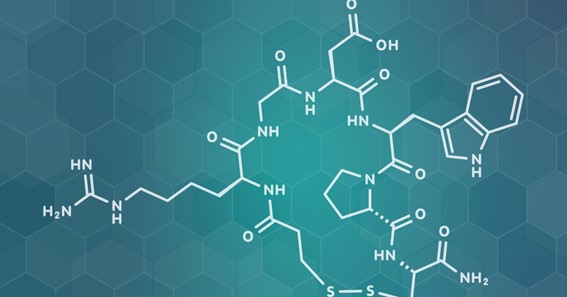Peptides are amino acid strings and are the “building blocks” for proteins. However, peptides do not have many amino acids when compared to proteins. The laboratory-made peptides replicate some of the ones found in the human body.
Many peptides are utilized to create medications for conditions like multiple sclerosis and diabetes.
Peptides and Proteins: Understanding the Difference
The differences between the peptides and proteins don’t end with how small or big they are. Peptides won’t fold into complicated forms compared to the larger proteins.
Rather than transforming into big complexes, helices, globules, and sheets, the peptides remain in the form of two-dimensional and lose strings within the cells. Due to their lack of organized structure and size, peptides can easily access all those places where larger proteins cannot reach.
Besides that, they can also penetrate the walls intestines, and at times, they can also get into the membranes of all the surrounding cells. For all the food engineers and drug makers, it’s viewed as an appealing quality of the “BIOPEPTIDES.”
They can easily get into the bloodstream and be transported to all those places where they are required. Additionally, the shorter peptides are cheaper and easy to produce compared to the larger and more complicated proteins.
The Medical Uses of Peptides
Experts say that peptides contain antimicrobial, antioxidant, and antithrombotic effects. In 2017, around 60 peptide drugs received approval in the US markets and in various other global markets. The peptides that are utilized in medicines occur naturally, or the synthetic ones are used.
Peptides, such as “vasopressin, “are used for treating diabetes insipidus and can also help manage antidiuretic hormone deficiency. Carnosine, on the other hand, is a natural antioxidant and a dipeptide, which are found in the muscles, brain, skin, kidneys, heart, and gut.
Experts say that carnosine can be used for treating severe conditions like:
- Parkinson’s Disease
- Down Syndrome
- Alzheimer’s Disease
- Autism
- Brain Ischemia
- Epilepsy
- Schistosomiasis
- Prevent Cataracts in the Eyes
Another peptide called Defensins is known by experts for its antimicrobial effects. At present, synthetic defenses are being studied in the form of therapeutics for HIV-1. Peptide hormones, such as Hepcidin, control iron absorption in the human body. The measurement of the level of this peptide in a human body can help with the diagnosis of Anemia.
There is also a peptide known as Chromofungin, which can be used for treating IBD or Inflammatory Bowel Disease. You will find various other antimicrobial peptides that are used for treating conditions, such as:
- Hepatitis C
- HIV
- Pneumonia
- Bacterial Infections
All these peptides are administered through IV or Intravenous Injections or orally or topically.
Ending Note
Peptides are not just naturally produced by the human body but are also created in laboratories by experts. These peptides are utilized in the production of medicines as well as various other research projects. The peptides used in medicines can help treat severe health conditions.







